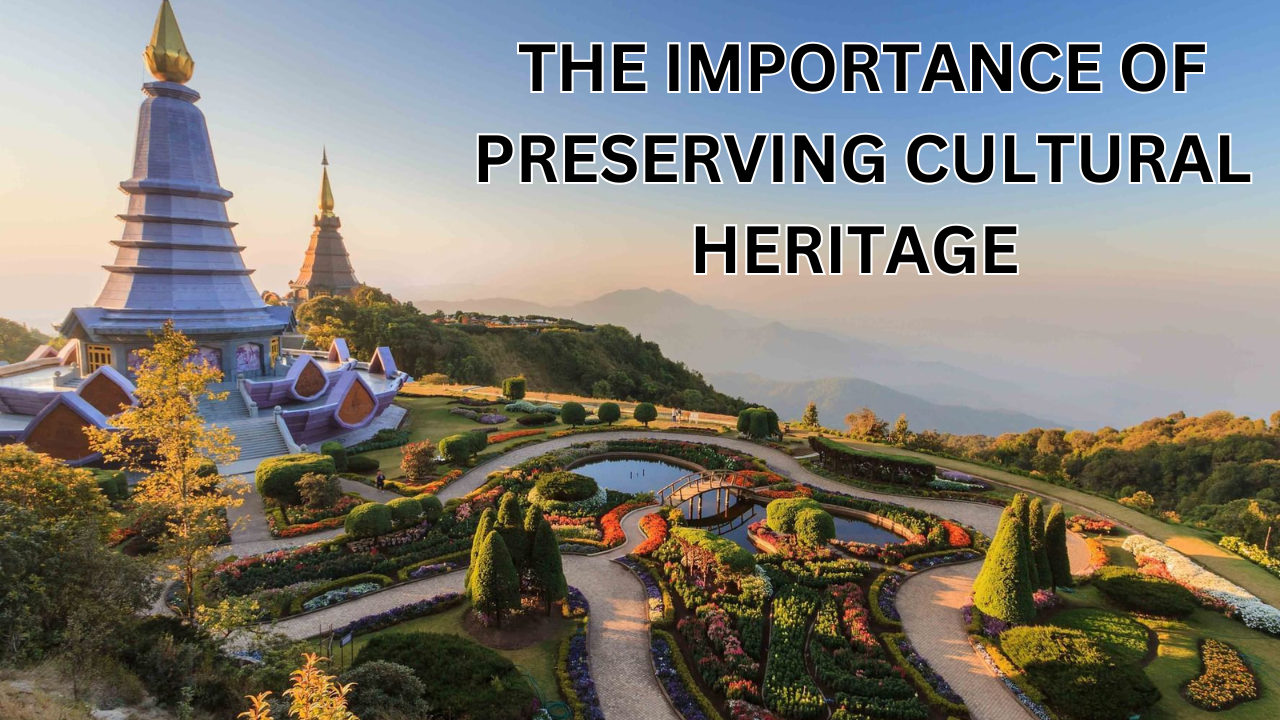Cultural heritage is the collective treasure of a society encapsulating the traditions history art and values passed down through generations it shapes the identity of a community fostering a sense of belonging and pride preserving cultural heritage is not just about safeguarding ancient artifacts or monuments it is about protecting the stories customs and wisdom that define who we are in a rapidly globalizing world where cultures are increasingly interconnected the risk of losing unique traditions becomes a pressing concern the importance of preservation lies not only in maintaining the past but also in ensuring that future generations can connect with their roots understand their history and carry forward the cultural knowledge.
Whether through tangible heritage like buildings and artwork or intangible elements such as language music and rituals the preservation of cultural heritage allows for the celebration of diversity fosters respect for different cultures and ensures that the lessons of history are not forgotten as we move forward it is crucial to recognize that preserving cultural heritage is an investment in our collective future offering a source of inspiration unity and resilience.
Significance of Cultural Heritage:
Cultural heritage is a vital aspect of human identity and community offering a deep connection to our history values and traditions it encompasses the collective experiences of generations from the tangible such as monuments art and architecture to the intangible like languages and customs this heritage is not merely a reflection of the past but a dynamic force shaping the present and influencing the future it serves as a foundation for personal and collective identity providing a sense of belonging and continuity amidst the rapid pace of modern change cultural heritage fosters understanding and appreciation across diverse communities promoting empathy and respect for different ways of life.
By preserving and celebrating our heritage we honor the wisdom and resilience of our ancestors while ensuring that future generations can access the rich tapestry of human creativity and knowledge in this sense cultural heritage is not just a treasure to be safeguarded it is a living evolving legacy that empowers individuals and societies to navigate challenges and envision a more connected inclusive world through cultural heritage we learn that the essence of being human transcends time and place offering a shared legacy that binds us all together.
Benefits of Preserving Cultural Heritage:
Preserving cultural heritage is crucial for maintaining the richness and diversity of human history offering a multitude of benefits that go beyond the simple act of safeguarding old traditions and artifacts one of the primary advantages is the preservation of identity as cultural heritage connects individuals to their roots helping them understand their past and where they come from this sense of belonging fosters pride and community reinforcing cultural continuity across generations the protection of heritage provides valuable lessons from history offering insights into human behavior achievements and mistakes which can guide present-day decision-making and promote social progress.
On a broader scale the conservation of cultural heritage also plays an essential role in promoting intercultural dialogue and understanding as societies become more interconnected recognizing and respecting the diverse cultures that make up the global community is essential for peace and cooperation beyond its social and educational value preserving cultural heritage also has significant economic benefits cultural tourism for example, can drive local economies create jobs and encourage sustainable development while raising global awareness about the importance of heritage.
Identity and Belonging:
Identity and belonging are deeply intertwined aspects of the human experience fundamental to how we perceive ourselves and relate to others our identity is shaped by a combination of personal experiences cultural influences and societal expectations creating a unique sense of the context of belonging that this identity finds its meaning to belong is to feel connected to a group whether it a family community nation or even a shared interest this sense of connection offers a sense of security and acceptance allowing individuals to express themselves authentically.
When we belong we gain validation and support fostering self-esteem and emotional well-being for many this feeling of belonging is rooted in cultural traditions values and shared experiences passed down through generations it is through these connections that people find common ground build relationships and strengthen their sense of purpose on a deeper level belonging helps us navigate the complexities of life especially during times of challenge or change it provides a framework for understanding our role in the world and contributes to a shared collective history that transcends individual lives.
Supports Education and Research:
The preservation of cultural heritage plays a crucial role in supporting education and research serving as a rich source of knowledge and inspiration by safeguarding historical artifacts traditions and practices we provide future generations with tangible connections to the past that can enhance their understanding of the world cultural heritage offers unique opportunities for academic exploration across a wide range of fields from history and anthropology to art architecture and social sciences it provides researchers with valuable insights into human development social dynamics and the evolution of civilizations enabling a deeper appreciation of the complexities of human culture.
Cultural heritage fosters critical thinking helping them understand the interplay between the past present and future through studying cultural artifacts literature and oral histories they learn not only about specific cultures but also about the broader human experience this understanding encourages empathy respect and global awareness as students are exposed to diverse perspectives and ways of life preserving cultural heritage supports innovation in education as educators can draw upon these resources to develop engaging curricula and interactive learning experiences.
